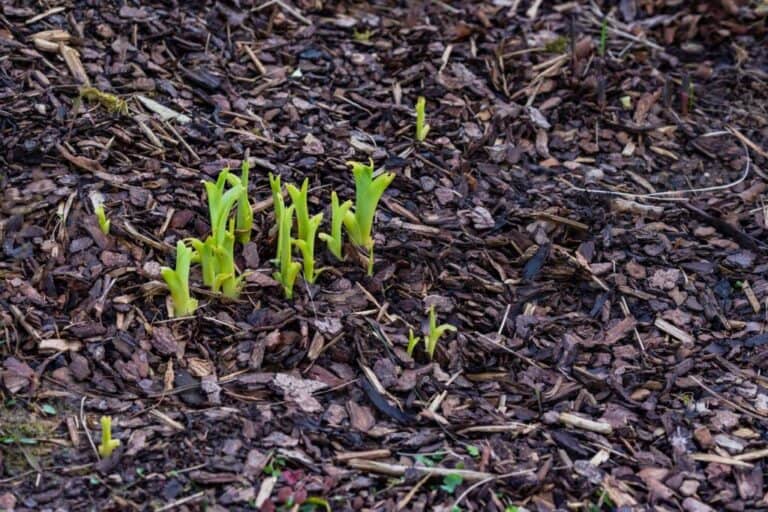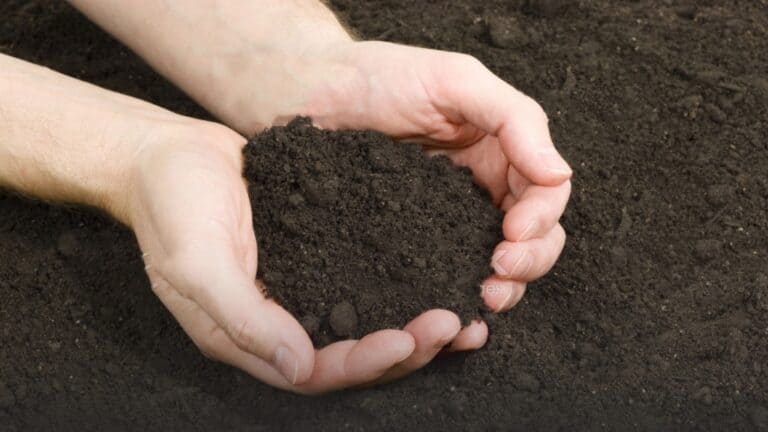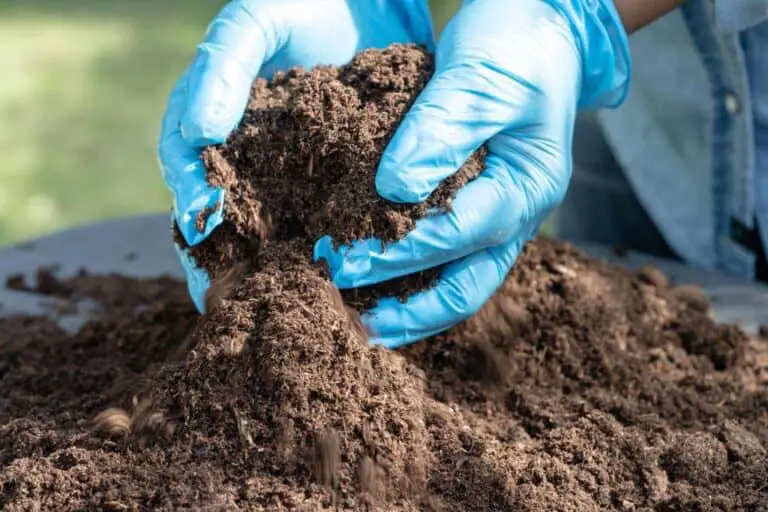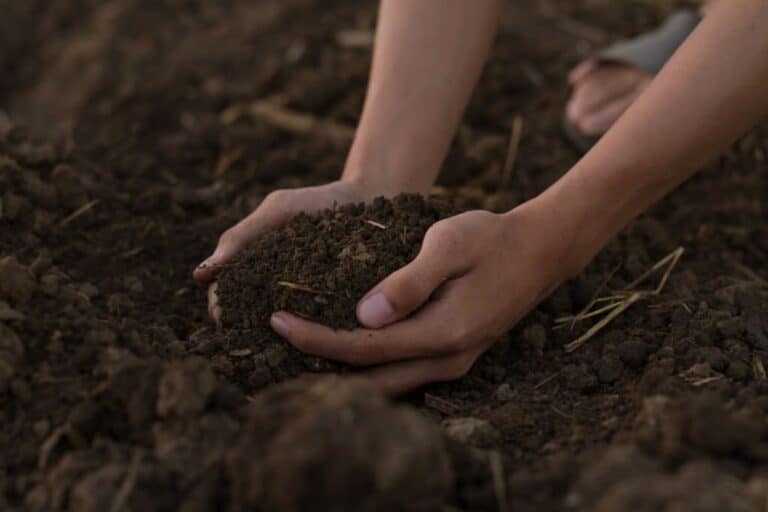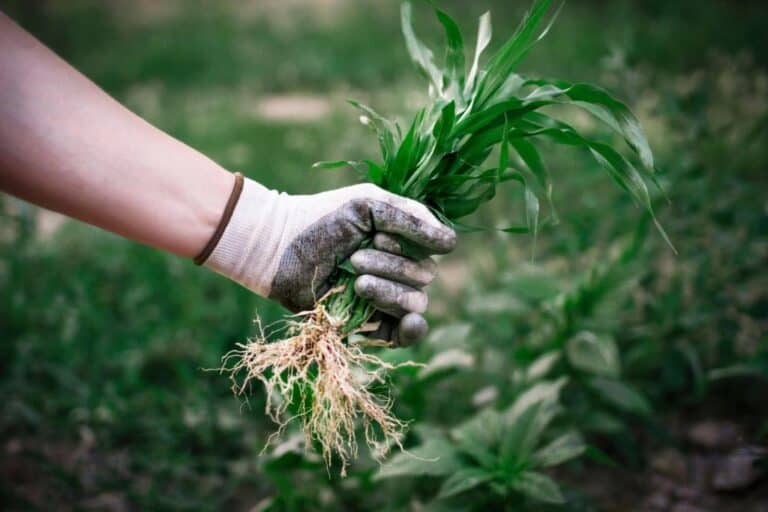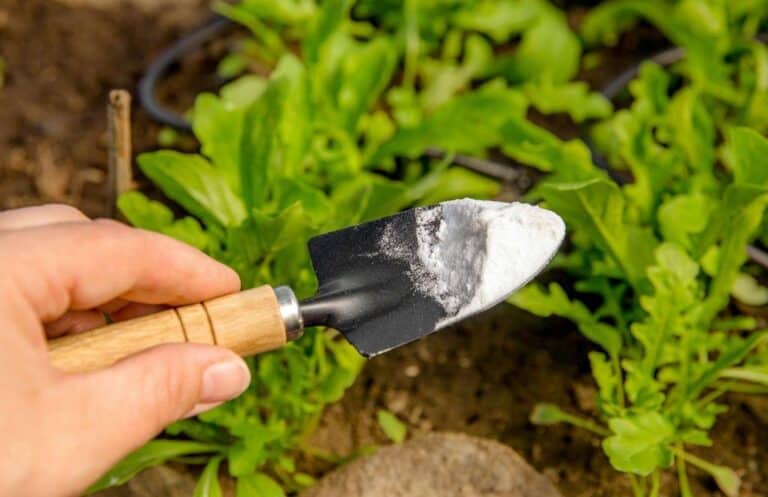Mulching After Rain vs. Before: Which One is Better for Your Garden?

A beautiful and thriving garden requires proper care, attention, and maintenance. Mulching is an important part of garden maintenance because it not only makes the garden look better but also helps plants in many ways.
However, there is a question that remains a mystery to many gardeners: Should you mulch after it rains or before? This might seem like a small detail, but it can make a significant difference in the growth and overall health of your plants.
In this article, we’ll explore the pros and cons of mulching before and after rain to help you make an informed decision and keep your garden thriving.
Understanding Mulching and Its Benefits
Mulch is a protective layer of material that is spread over the surface of the soil around plants, shrubs, and trees. It is an important part of gardening and landscaping because it offers numerous benefits. Mulch can be made of a variety of materials, such as wood chips, leaves, grass clippings, straw, rocks, and even recycled rubber.
One of the most important benefits of mulch is its ability to conserve moisture in the soil. Mulch acts as a barrier that helps prevent water from evaporating from the soil. This can be particularly important in hot, dry climates where water can be scarce. By retaining moisture, mulch can help reduce the frequency of watering and save water.
Mulch also helps to regulate the temperature of the soil. In hot weather, mulch can provide shade and keep the soil cooler, which can help prevent plant roots from drying out. In colder weather, mulch can act as an insulator and keep the soil warmer, which can help protect roots from frost damage.
Another benefit of mulch is that it can help suppress weeds. Mulch prevents weed seeds from germinating by blocking out the light they need to grow. This can reduce the need for herbicides and manual weeding, which can save time and money.
Mulch can also improve soil health by adding organic matter to the soil as it breaks down. This can help improve soil structure, fertility, and drainage. Mulch can also provide a habitat for beneficial microorganisms that can help decompose organic matter and make nutrients available to plants.
Finally, mulch can enhance the appearance of a garden or landscape. A well-mulched garden looks tidy and well-cared for and can add aesthetic value to a property.
The Importance of Watering Mulch
Mulch needs to be watered for a garden or landscape to stay healthy and full of life. While mulch can help conserve moisture in the soil, it still needs to be watered regularly to be effective. If mulch doesn’t get enough water, it can dry out and get packed down. This can make it less effective at regulating soil temperature, keeping weeds down, and giving plants nutrients.
One important aspect of watering mulch is to water it deeply and infrequently. This means providing enough water to saturate the mulch layer and reach the soil beneath it, but not so much that it becomes waterlogged. Deep watering encourages plant roots to grow deeper into the soil, which can make them more resilient to drought conditions.
The frequency of watering mulch will depend on several factors, including the type of mulch used, the climate, and the type of plants in the garden or landscape. In general, mulch should be watered when the soil beneath it feels dry to the touch. During hot, dry weather, it may be necessary to water the mulch more frequently to prevent it from drying out.
When watering mulch, it is important to use a gentle, steady stream of water. This will help prevent erosion of the mulch layer and minimize damage to plants. A soaker hose or drip irrigation system can be particularly effective for watering mulch, as they provide slow, steady watering that allows the water to penetrate deeply into the soil.
In addition to watering the mulch regularly, it is important to monitor the moisture level of the soil. Overwatering mulch can be just as detrimental as underwatering, as it can lead to root rot and other fungal diseases. Signs of overwatering include waterlogged soil, yellowing leaves, and a foul odor.
Mulching After Rain vs. Before Rain: Which One is Better for Your Garden?
When you put down mulch, it can have a big effect on how well it keeps water in the soil and keeps weeds from growing. Two options for timing are mulching before rain and mulching after rain. Both have their advantages and disadvantages, depending on the specific needs of the garden or landscape.
1. Mulching Before Rain
Mulching before rain can be beneficial because it allows the mulch to absorb the moisture from the rain and hold it in the soil. This can be particularly useful in dry climates where water is scarce. Also, putting down mulch before it rains can help stop soil erosion by creating a barrier that stops rainwater from washing the soil away.
One potential disadvantage of mulching before rain is that it can make it difficult to evenly distribute the mulch. Rain water after mulching can cause the mulch to clump together, making it difficult to spread out evenly. This might result in areas where the mulch is not covering the exposed soil.
2. Mulching After Rain
Mulching after rain can also be beneficial because it can help lock in the moisture from the rain and prevent it from evaporating from the soil. Additionally, mulching after rain can make it easier to evenly distribute the mulch, as the rain can help settle it into place.
One potential disadvantage of mulching after rain is that it can be more difficult to prevent soil erosion. Rain can wash away soil before the mulch has a chance to absorb the moisture, which can create bare spots in the garden or landscape.
Will Rain Wash Away Mulch?
Rain can be a significant factor in determining the longevity of mulch, and gardeners and landscapers need to be mindful of the impact that heavy rain can have on mulch.
One of the primary concerns with heavy rain and mulch is that it can cause certain types of mulch to wash away or become displaced. Organic mulches like wood chips and bark nuggets are particularly susceptible to this problem, as they can become waterlogged and heavy, making them more likely to float away in a heavy rain.
On the other hand, denser mulch materials like pine straw, wood chips, and shredded wood are better choices for a rain garden as they are less likely to float away in water. They are also better at retaining soil moisture and preventing erosion in the garden.
However, it is also important to note that rain can actually be beneficial for mulch in certain circumstances. Rain that is light to moderate can help to moisten the soil and make the mulch better at keeping water in. Additionally, rain can help to distribute nutrients from the mulch layer into the soil, providing valuable nutrients for plant growth.
What Is the Best Mulch for Rain?
Choosing the right type of mulch for your rain garden is essential to ensuring that it stays in place and remains effective in managing soil moisture levels. Some types of mulch are better suited for rainy conditions than others, and gardeners and landscapers need to be mindful of these differences when selecting their mulch.
If you decide to use wood chips or bark nuggets as your mulch of choice, it is recommended that you opt for larger nuggets that will be heavier and less likely to float away. Larger nuggets are also less likely to get too wet and clump together, which can make them less effective at controlling the soil’s temperature and moisture.
On the other hand, denser mulch materials like pine straw, wood chips, and shredded wood are better choices for a rain garden as they are less likely to float away in water. They are also better at retaining soil moisture and preventing erosion in the garden.
Pine straw is a popular choice for rain gardens as it is lightweight but still dense enough to stay in place during heavy rain. It is also an excellent option for sloped areas where erosion is a concern. Wood chips and shredded wood are other good options for a rain garden, as they are heavy and provide good insulation, helping to maintain soil moisture levels.
Should Mulch Be Covered in Rain?
Heavy rain can impact the effectiveness of mulch, leading to issues such as mold growth, fungus growth, and nutrient loss. This raises the question: Should mulch be covered in the rain?
If rain is in the forecast, it’s best to delay the delivery and application of mulch. Heavy rain can wash away newly applied mulch, leaving your garden bed bare and unprotected. Also, too much water can make it easy for mold and fungus to grow, which can hurt plants.
If you have already received your mulch delivery and rain is in the forecast, it’s important to cover the pile with a tarp. This will help to protect the mulch from becoming saturated with water and preventing it from washing away. It’s essential to make sure that the tarp is secure and covers the entire pile, as even small gaps can allow water to seep through and cause damage.
In some cases, it may be necessary to install the mulch even if rain is in the forecast. If this is the case, it’s important to take precautions to protect the newly applied mulch. One strategy is to use a leaf blower or rake to create a small trench around the perimeter of the garden bed. This will help to divert water away from the garden bed and prevent it from washing away the mulch.

